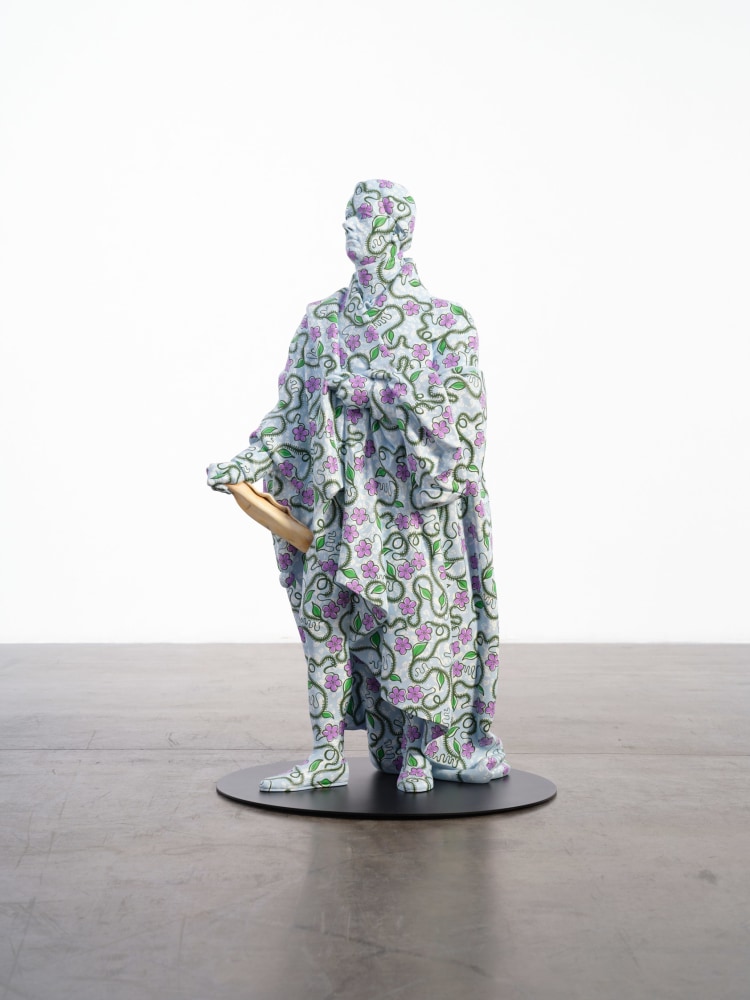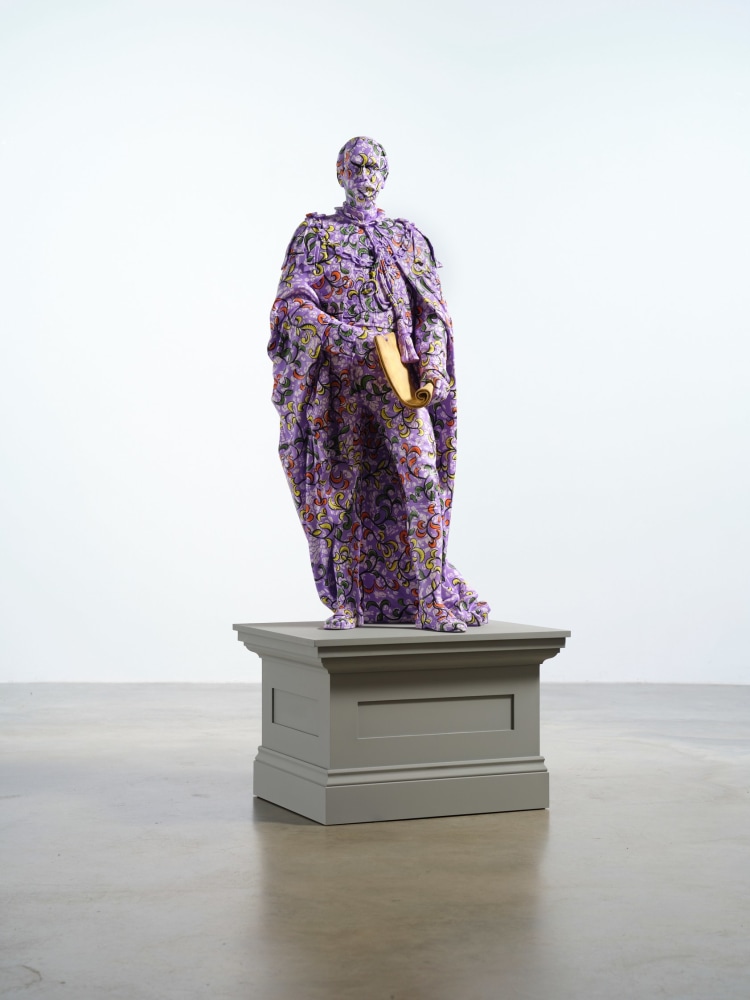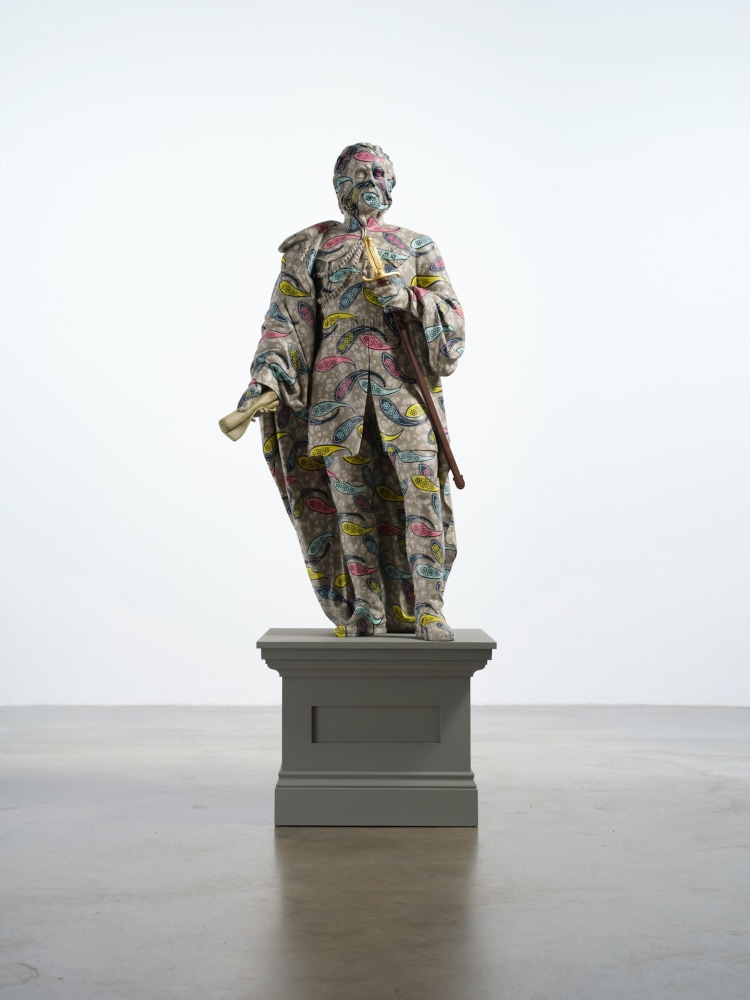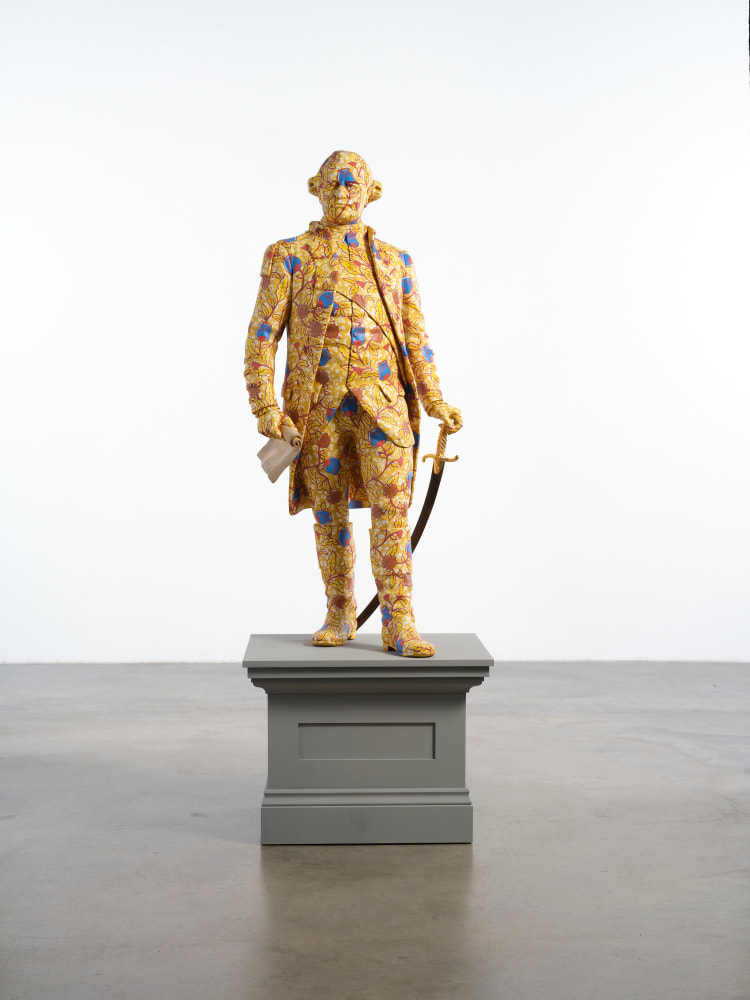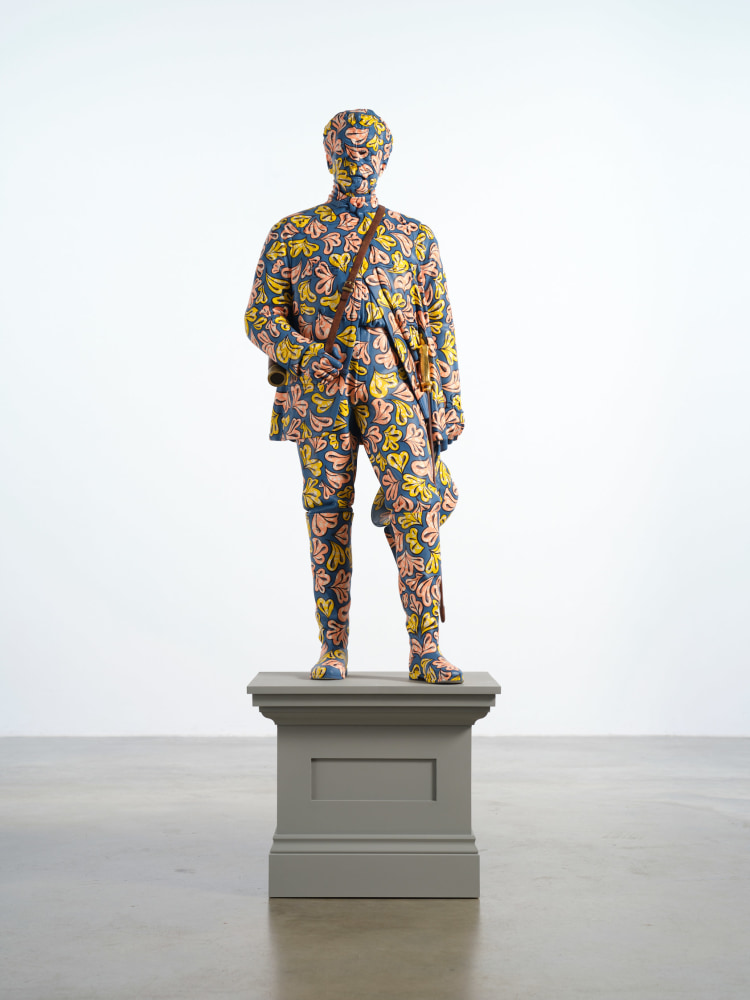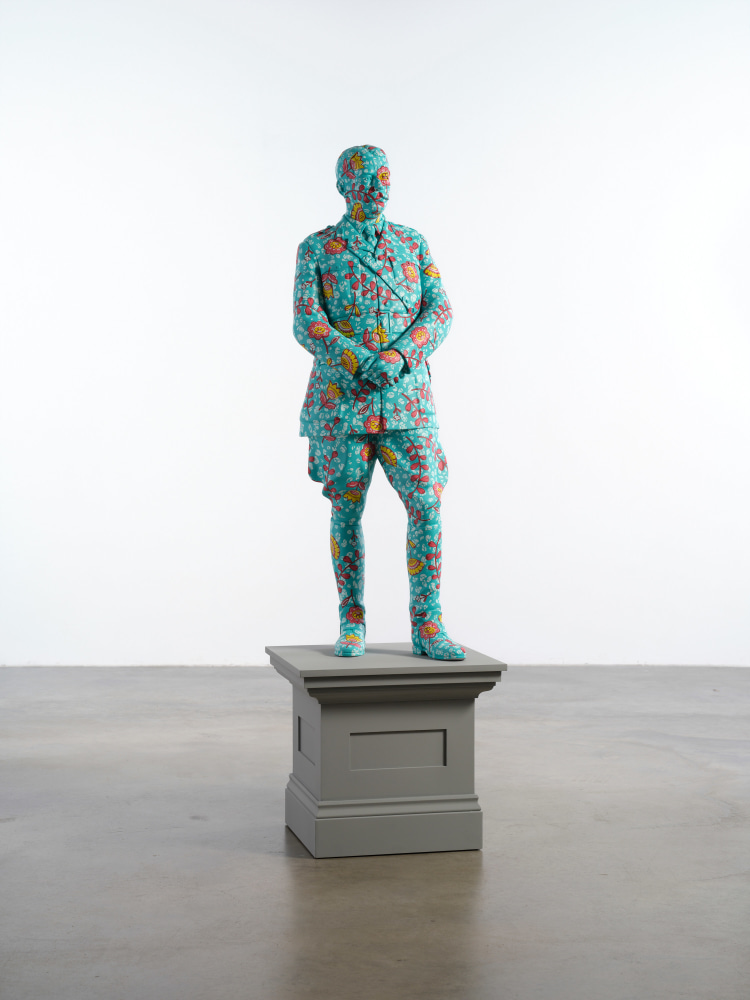Suspended States
Serpentine South Gallery
12 April - 1 September 2024
Yinka Shonibare CBE | Suspended States
Yinka Shonibare CBE
Head-Image
‘Suspended States addresses the suspension of boundaries, whether psychological, physical, or geographical — all boundaries of nationhood are in a state of suspense. This is an exhibition in which Western iconography is reimagined and interrogated, at a moment in history when Nationalism, protectionism and hostility towards foreigners is on the rise.’
– Yinka Shonibare CBE
Watch our film spotlighting
Yinka Shonibare CBE RA at Serpentine South Gallery
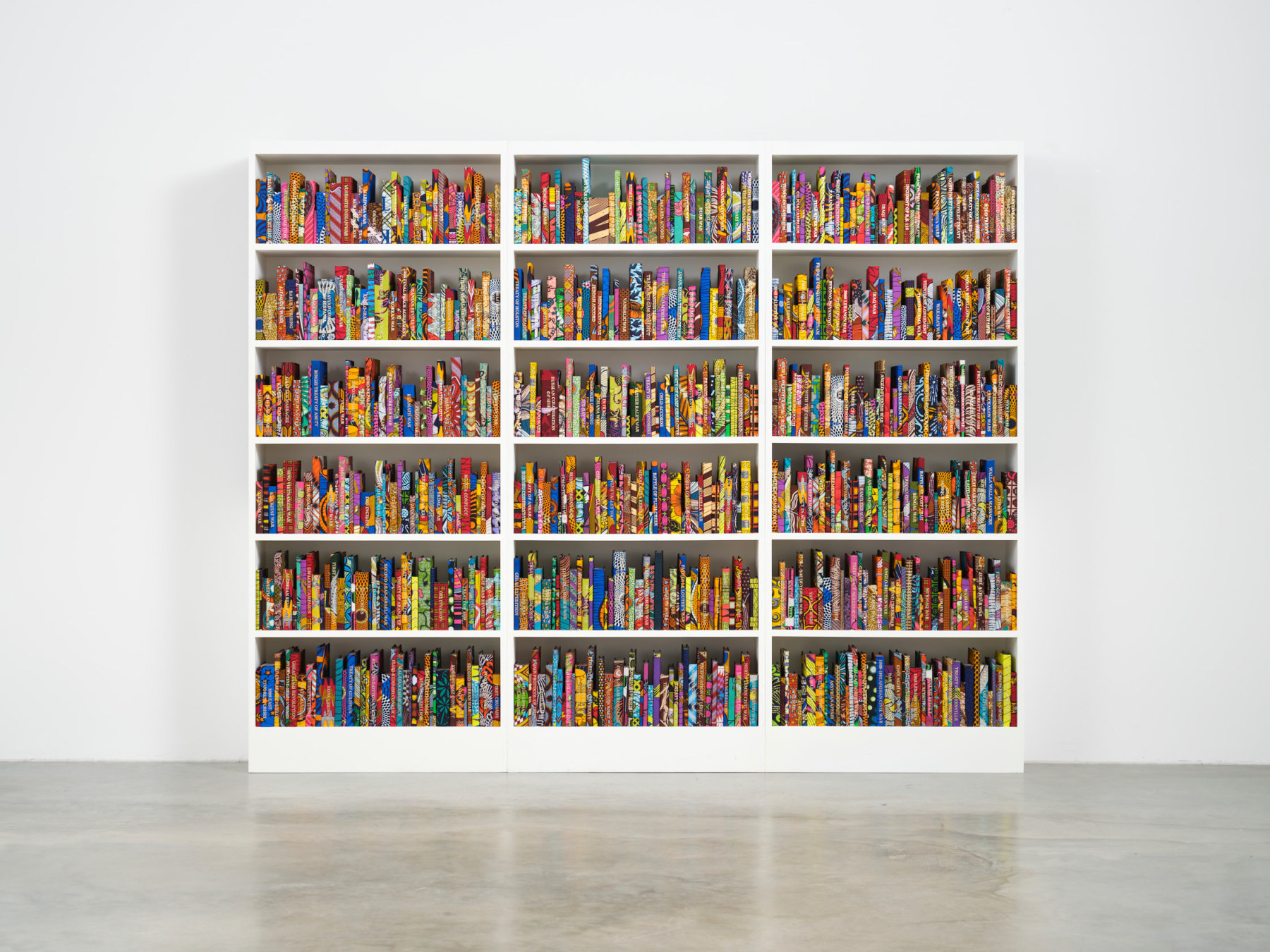
Yinka Shonibare CBE RA
War Library, 2024
6000 hardback books, Dutch wax printed cotton textile,
gold foiled names and website
Variable Dimensions
Unique
The War Library is an exploration of the legacy of war and conflict brought about by imperial ambitions. The installation consists of 5,700 books bound in Dutch wax printed cotton. Written in gold on the spines of 2,700 books are names of global conflicts and peace treaties, which were a direct or indirect result of imperial ambitions.
The conflicts and treaties represented are from any historical period and offer a snapshot from around the world. The War Library is therefore by no means meant to be a complete list of all conflict and peace processes but instead is a reflection on how they are currently presented in the public realm. This is in recognition of the fact that views on conflict and peace are always subjective. Many of the names of the conflicts and treaties appear on two books, under different names, and this is again to reflect the subjective nature of these histories and to ensure that opposing perspectives are represented.
The work asks us to consider the historical and current impact of imperial ambitions and the role they played in identity shaping in our global society. The library is supported by an online resource which provides further information on each of the conflicts and peace treaties represented. This research was conducted by independent researchers and aims to give the different parties involved in the conflict or treaty equal weighting.
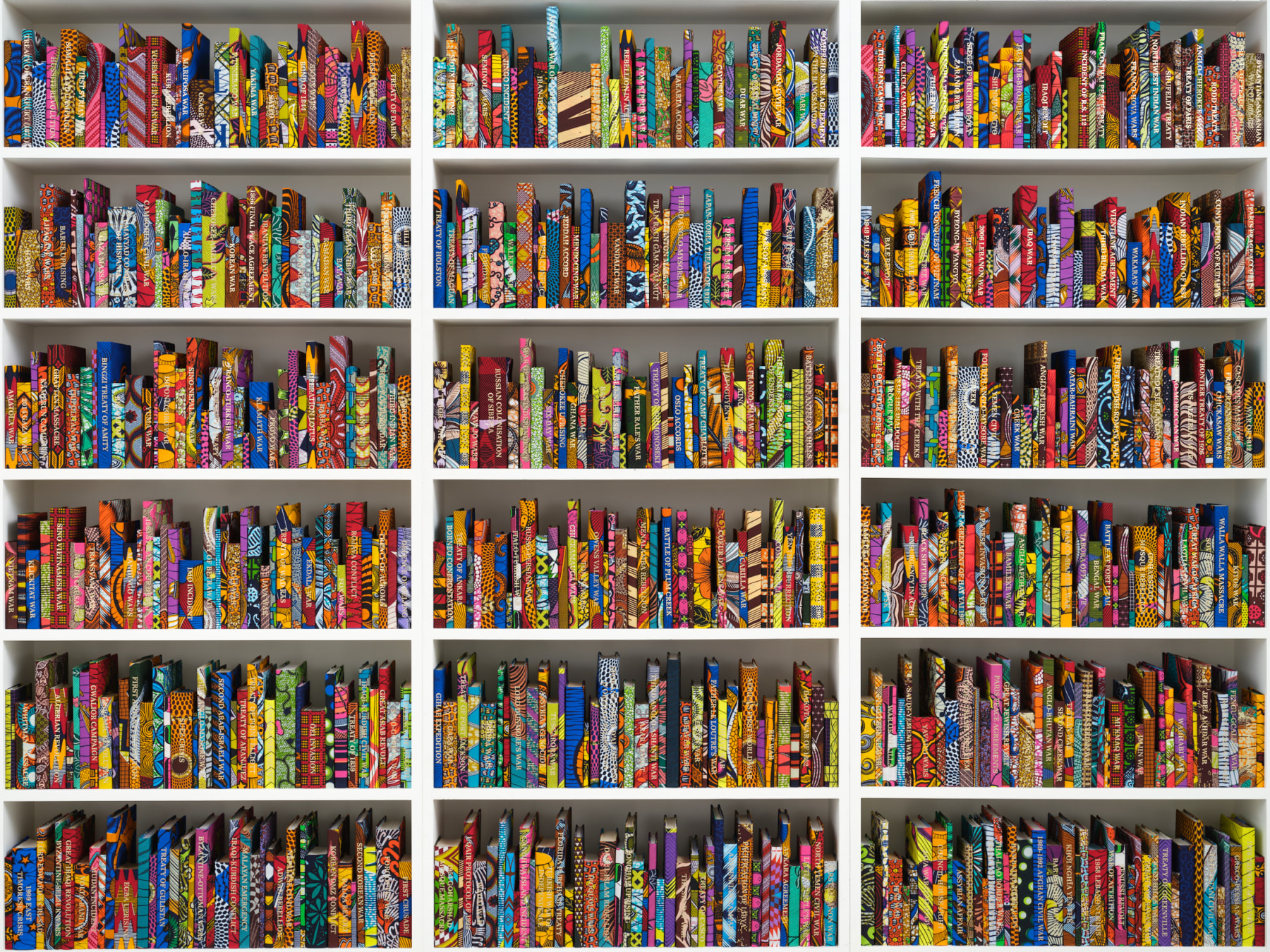
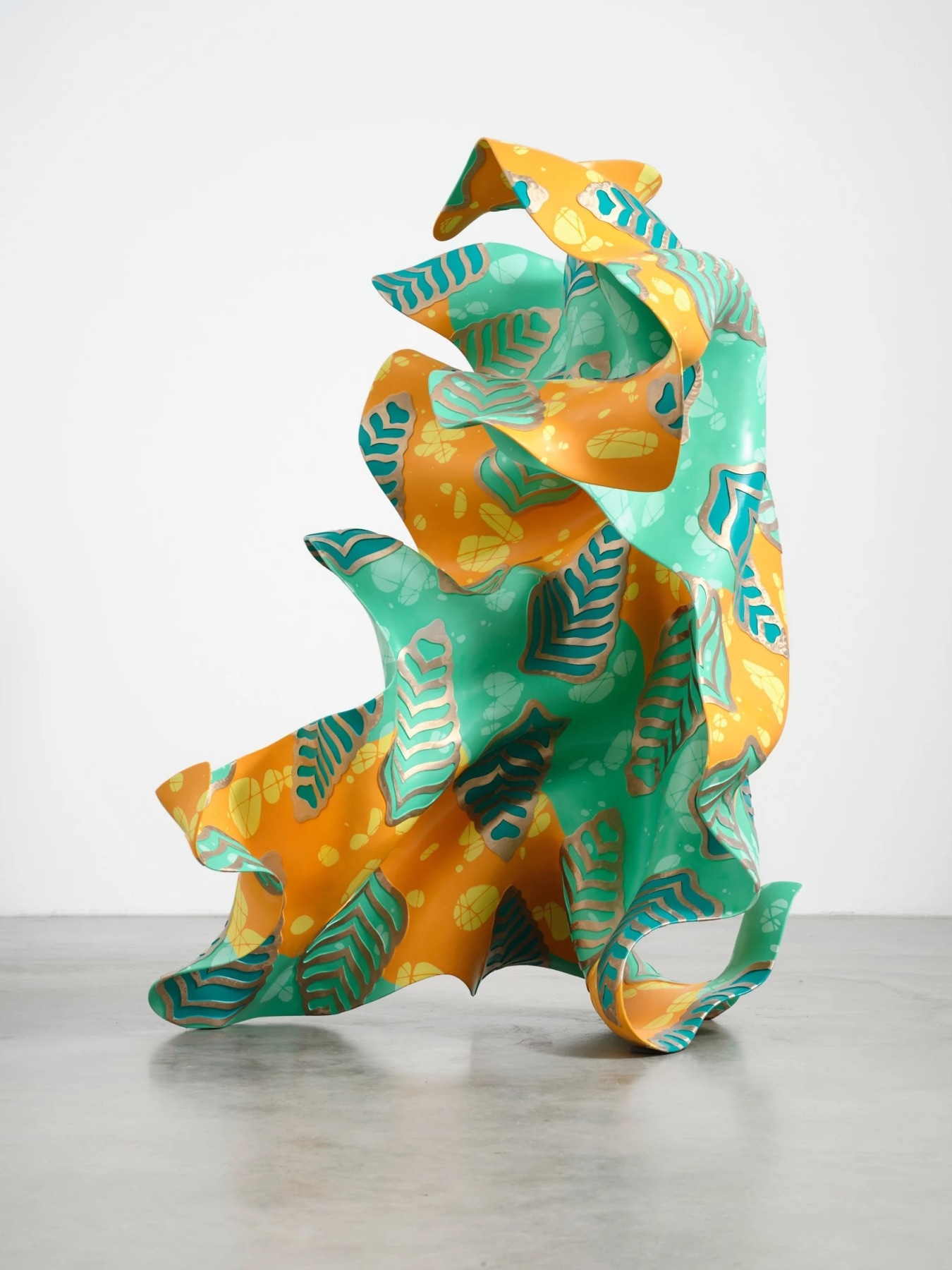
Yinka Shonibare CBE RA
Wind Sculpture in Bronze V, 2023/24
Hand-painted Bronze
Work: 200 x 137 x 147 cm (78.7 x 53.9 x 57.9 in.)
2 AP
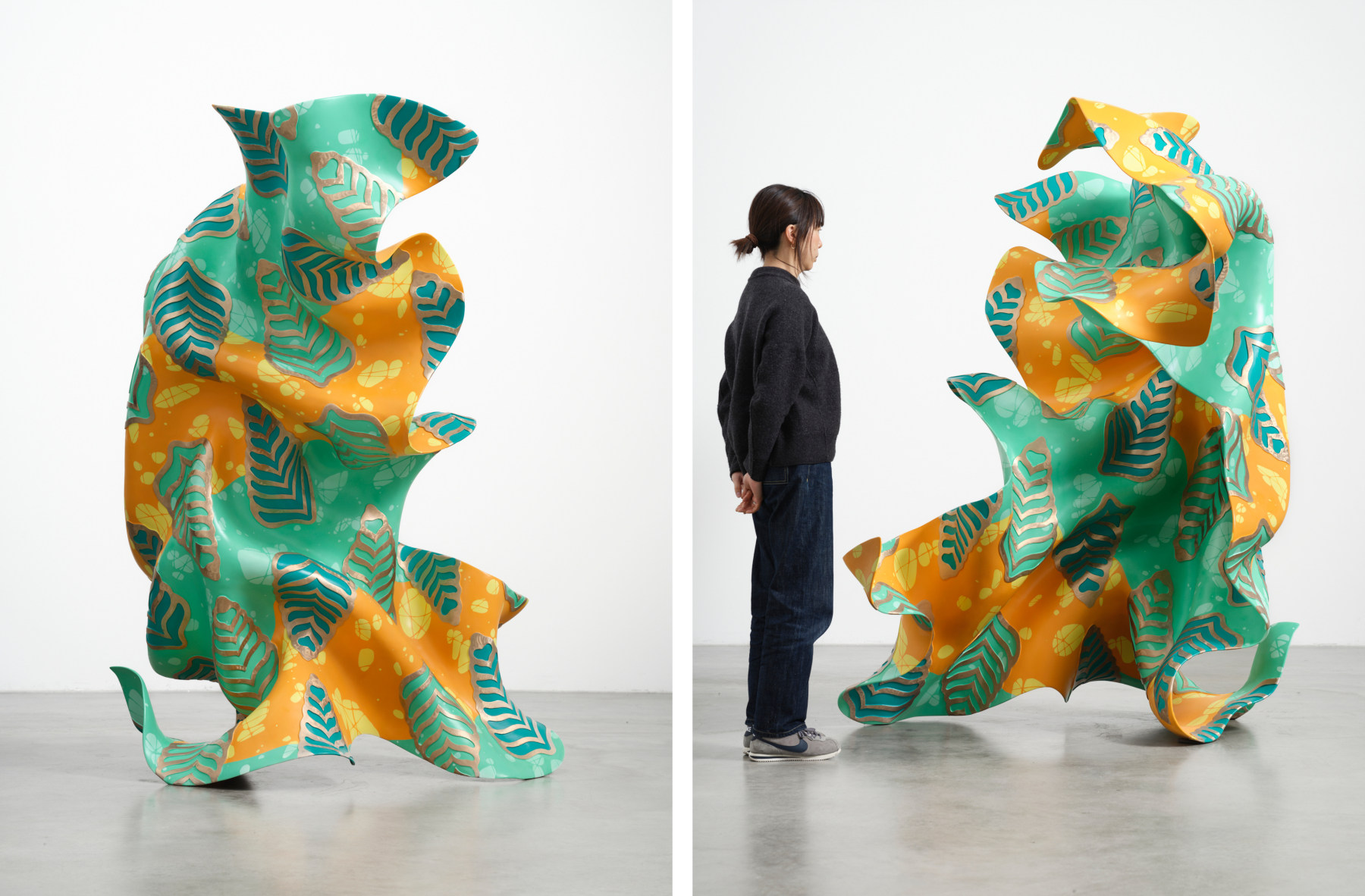
Decolonised Structures
This series of scaled-down public monuments are based on public sculptures in London which were originally commissioned to celebrate a colonial figure. The originals are mostly large-scale bronze sculptures placed on tall plinths. Here, Shonibare reflects on the dynamic of scale, ‘the relationship of your body to their body is immediately a subservient one.’ Here, the sculptures are reduced in size and deliberately brought to eye level ‘to metaphorically reduce [their] grandeur… [and] power over citizens.’
The Dutch wax patterns that cover the monuments are designed by Shonibare and hand-painted onto the surface of each sculpture, some also include gold leaf. ‘I’m making them more beautiful,’ the artist explains, ‘I’m changing their character, or the history of their character, into something much more interesting.’ Rather than making a moral judgment, Shonibare invites discussion on the role of public sculptures today.
Created in response to the debates around public sculptures of colonial figures, Shonibare reflects ‘I don’t think statues should be destroyed, the public should be able to see them, but there should be museums built for them so people can understand the history of these people and what they did.’
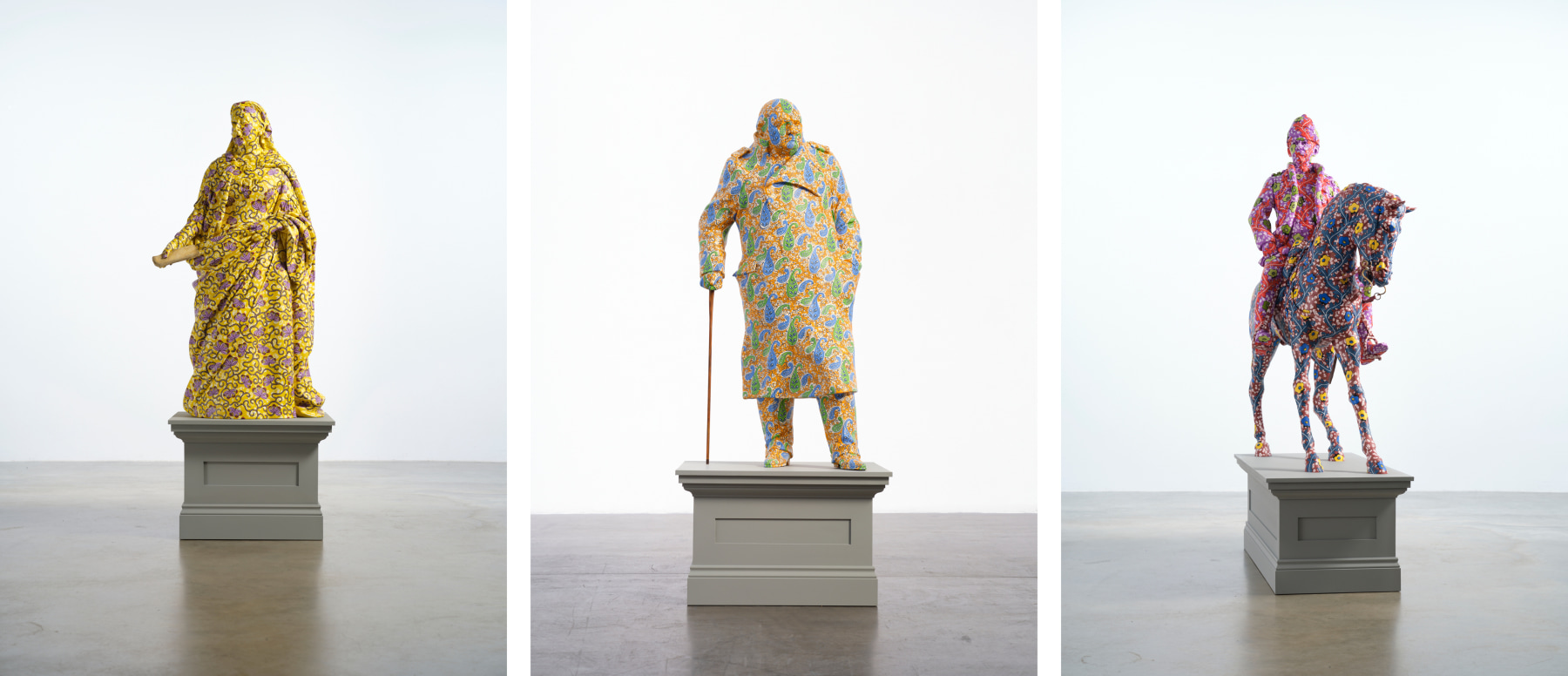
Yinka Shonibare CBE RA
Decolonised Structures (Queen Victoria, Churchhill, Roberts), 2022
Seven fibreglass sculptures, hand-painted with Dutch wax pattern and wooden plinth
Queen Victoria: 139 x 75 x 57 cm (54.7 x 29.5 x 22.4 in.)
Churchill: 139 x 75 x 57 cm (54.7 x 29.5 x 22.4 in.)
Roberts: 180 x 70 x 149,5 cm (70.9 x 27.6 x 58.9 in.)
Unique
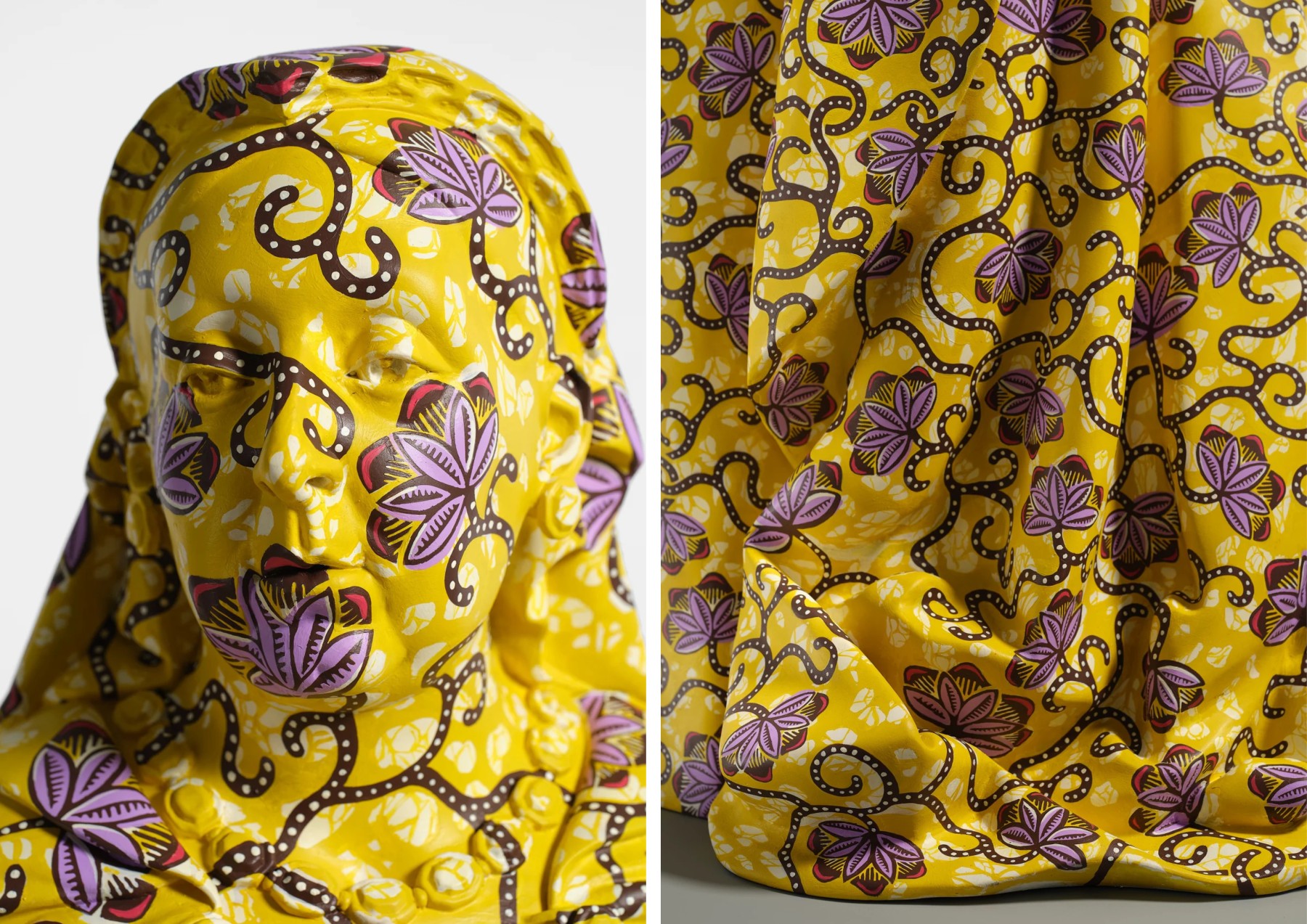
Alternate Angles | Yinka Shonibare CBE RA, Decolonised Structures (Queen Victoria), 2022
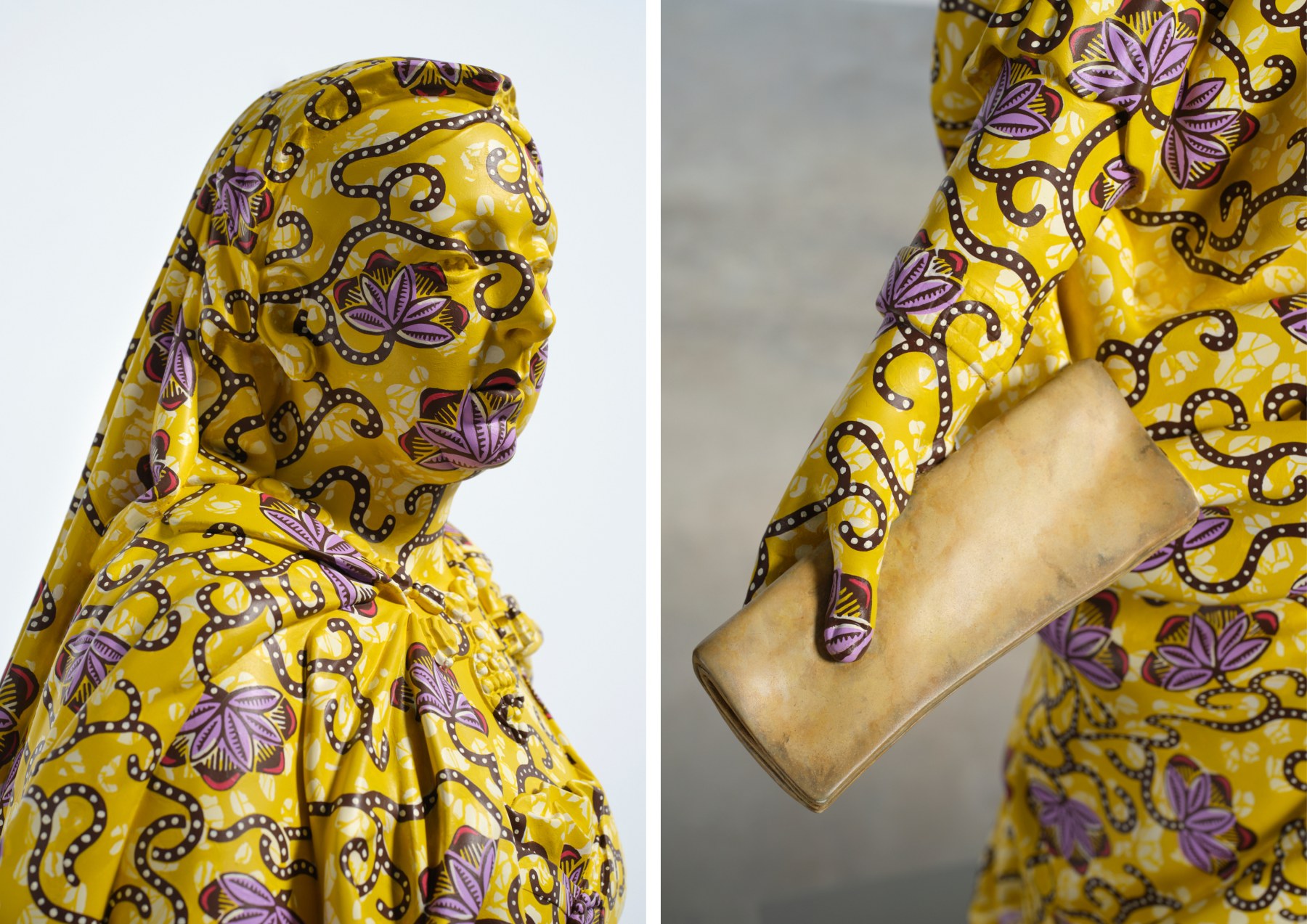
Alternate Angles | Yinka Shonibare CBE RA, Decolonised Structures (Queen Victoria), 2022
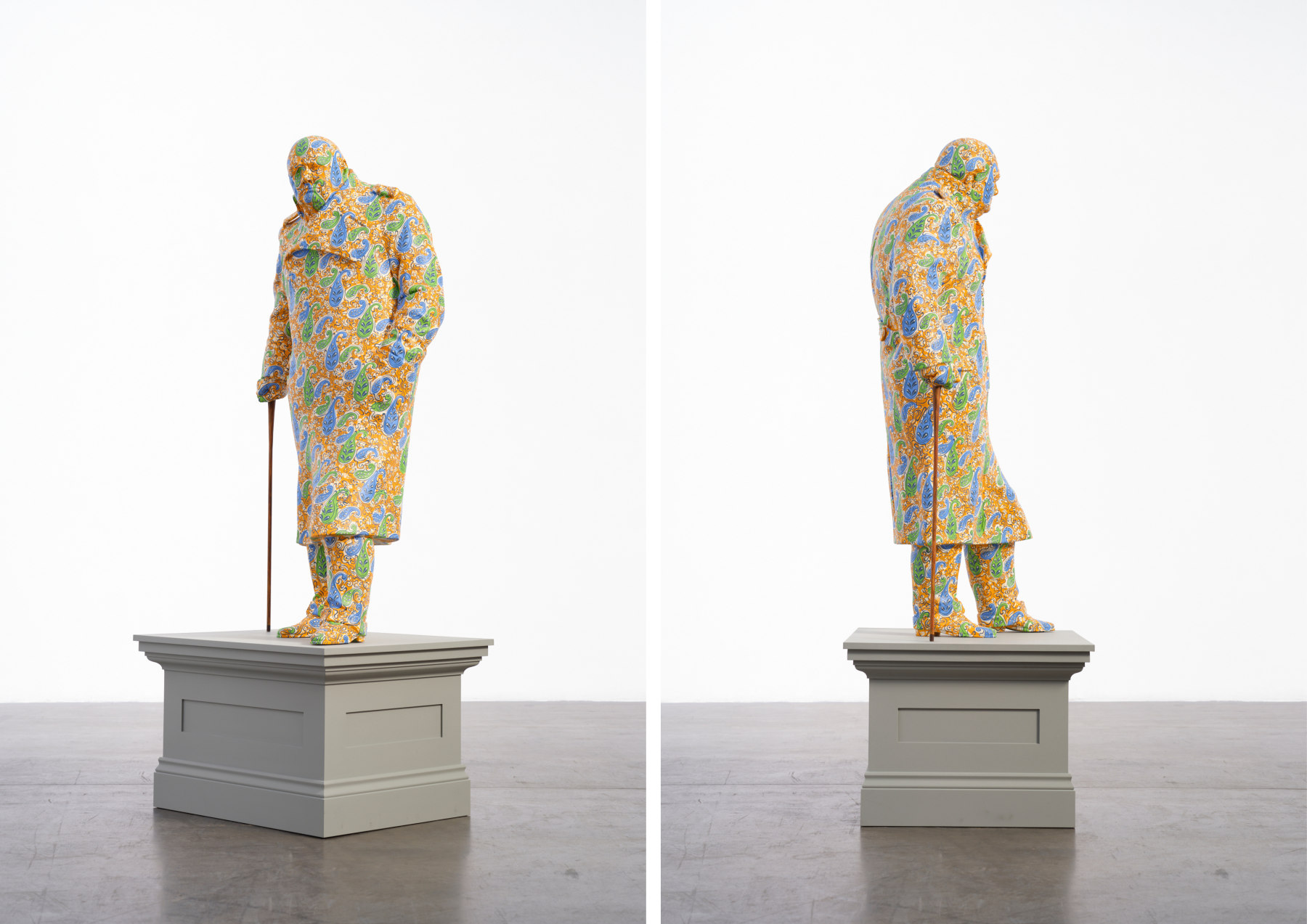
Alternate Angles | Yinka Shonibare CBE RA, Decolonised Structures (Churchhill), 2022
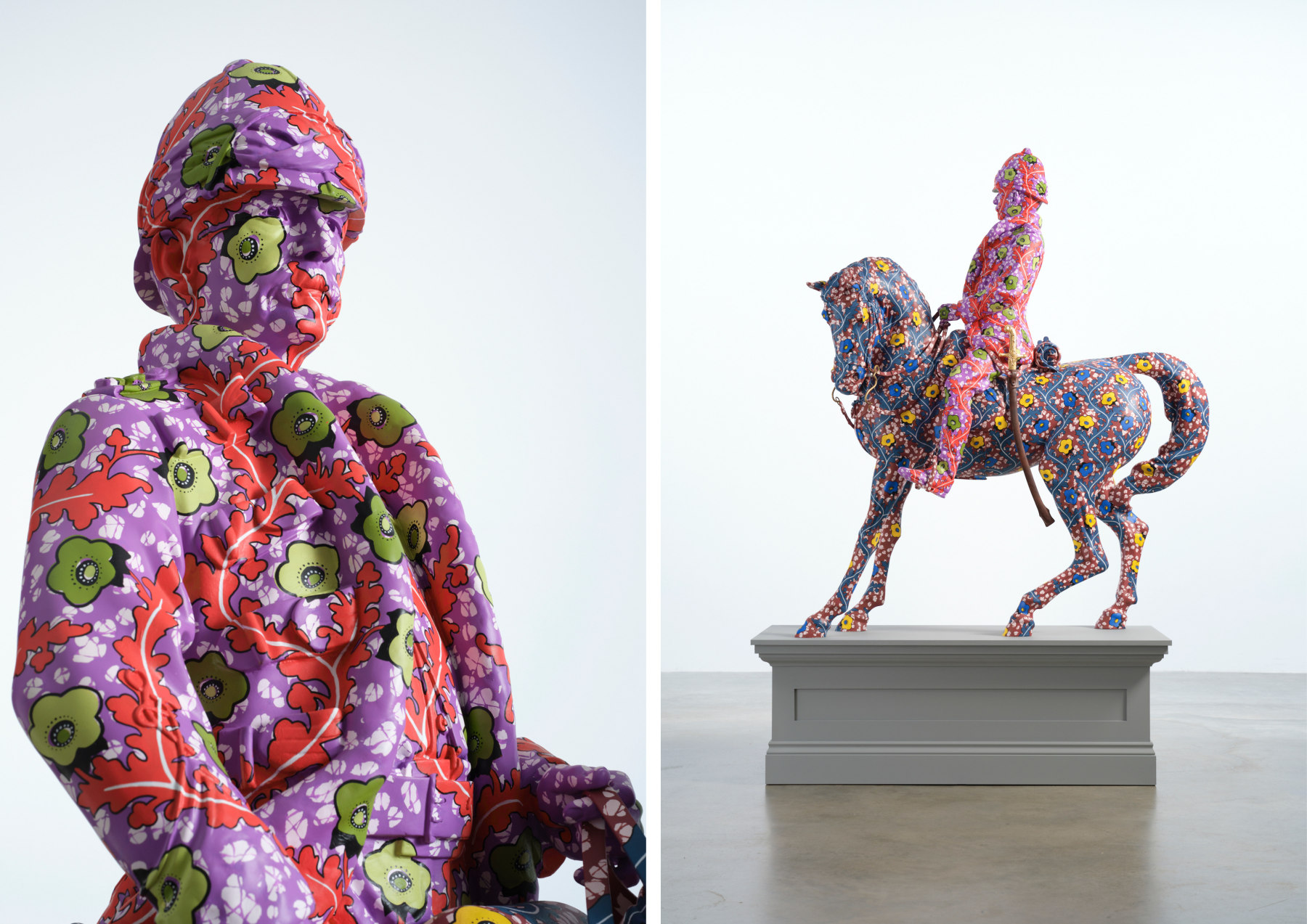
Alternate Angles | Yinka Shonibare CBE RA, Decolonised Structures (Roberts), 2022
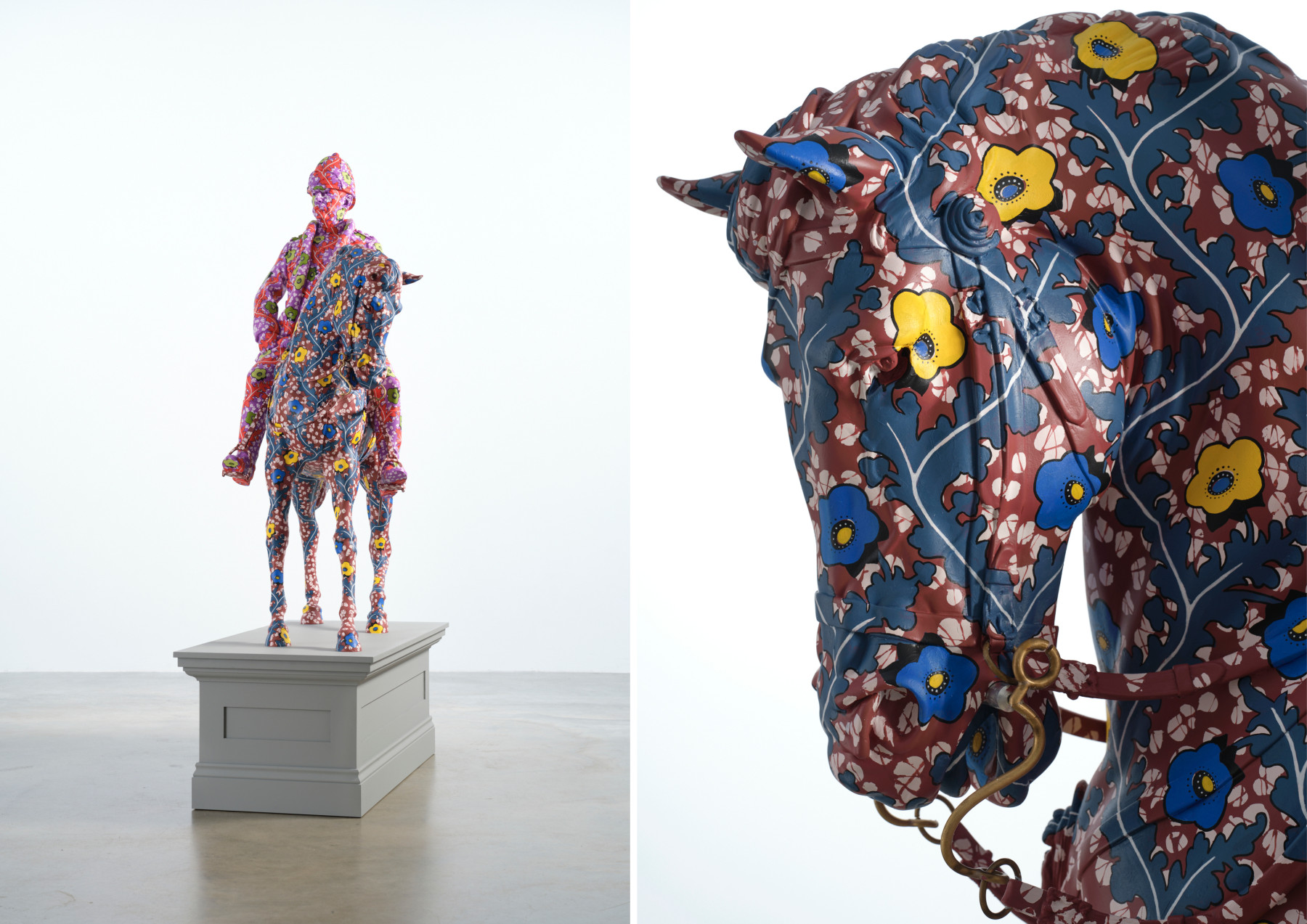
Alternate Angles | Yinka Shonibare CBE RA, Decolonised Structures (Roberts), 2022
SANCTUARY CITY
Sanctuary City is an installation comprising of scaled-down replicas of historic and contemporary buildings from across the globe that have been or are considered places of refuge for persecuted and vulnerable groups. It highlights the basic human need for safety and shelter in a time of increasing regional conflict and socio-economic disparities, Shonibare describes shelter as ‘one of the most pressing political concerns right now.’
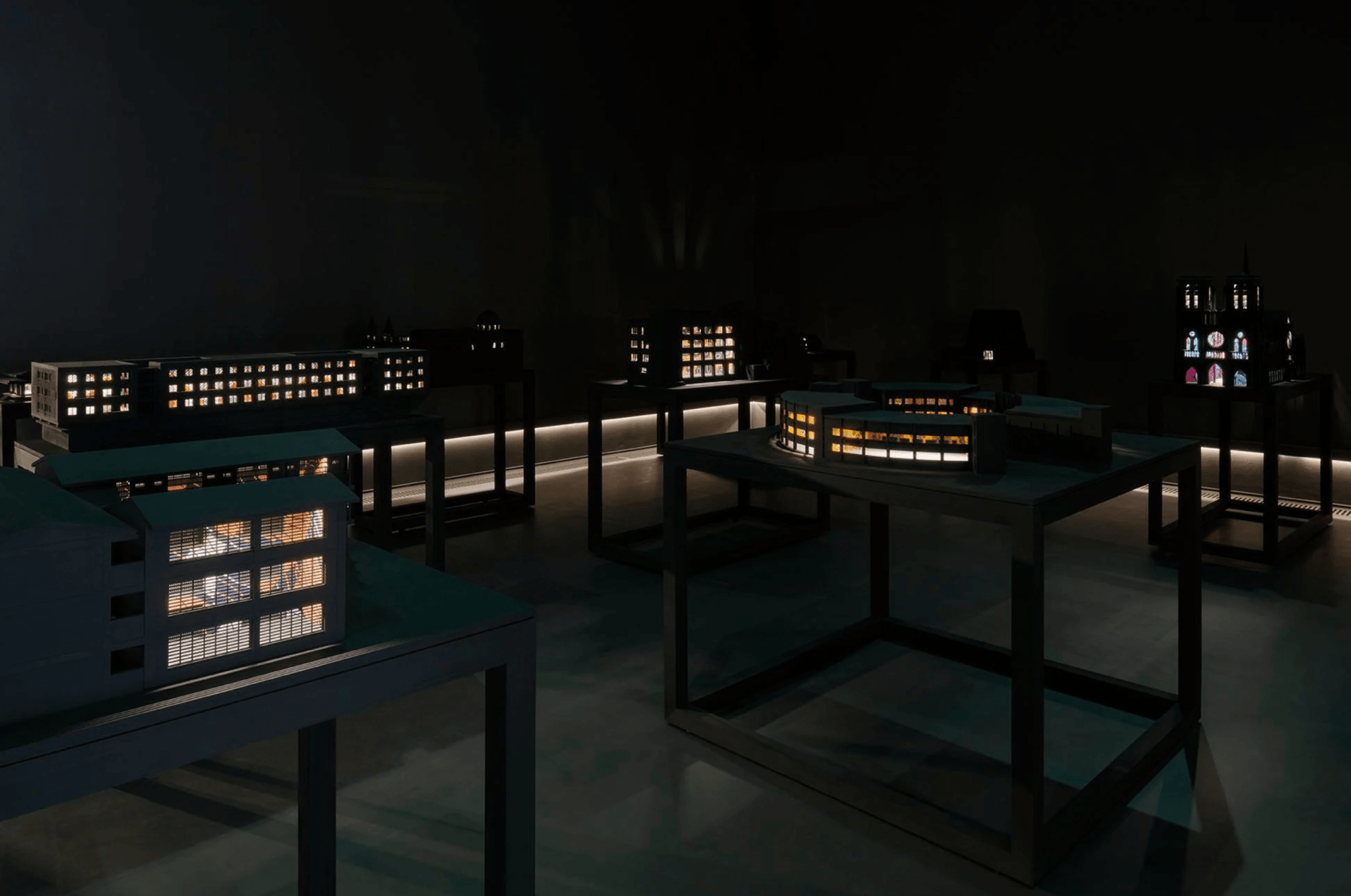
The artist selected buildings based on their social role and importance. The practice of claiming sanctuary includes examples of temples in ancient Greece and Rome which offered protection to fugitives and slaves. In medieval Europe, religious buildings provided asylum for criminals or individuals who challenged the norms of society. While in recent years, intergovernmental and non-profit organisations, and charities aim to offer places of sanctuary to those who are displaced. These spaces are increasingly politicised, navigating complex socio-economic dynamics in an attempt to provide safety to vulnerable groups such as refugees, rough sleepers and domestic violence survivors.
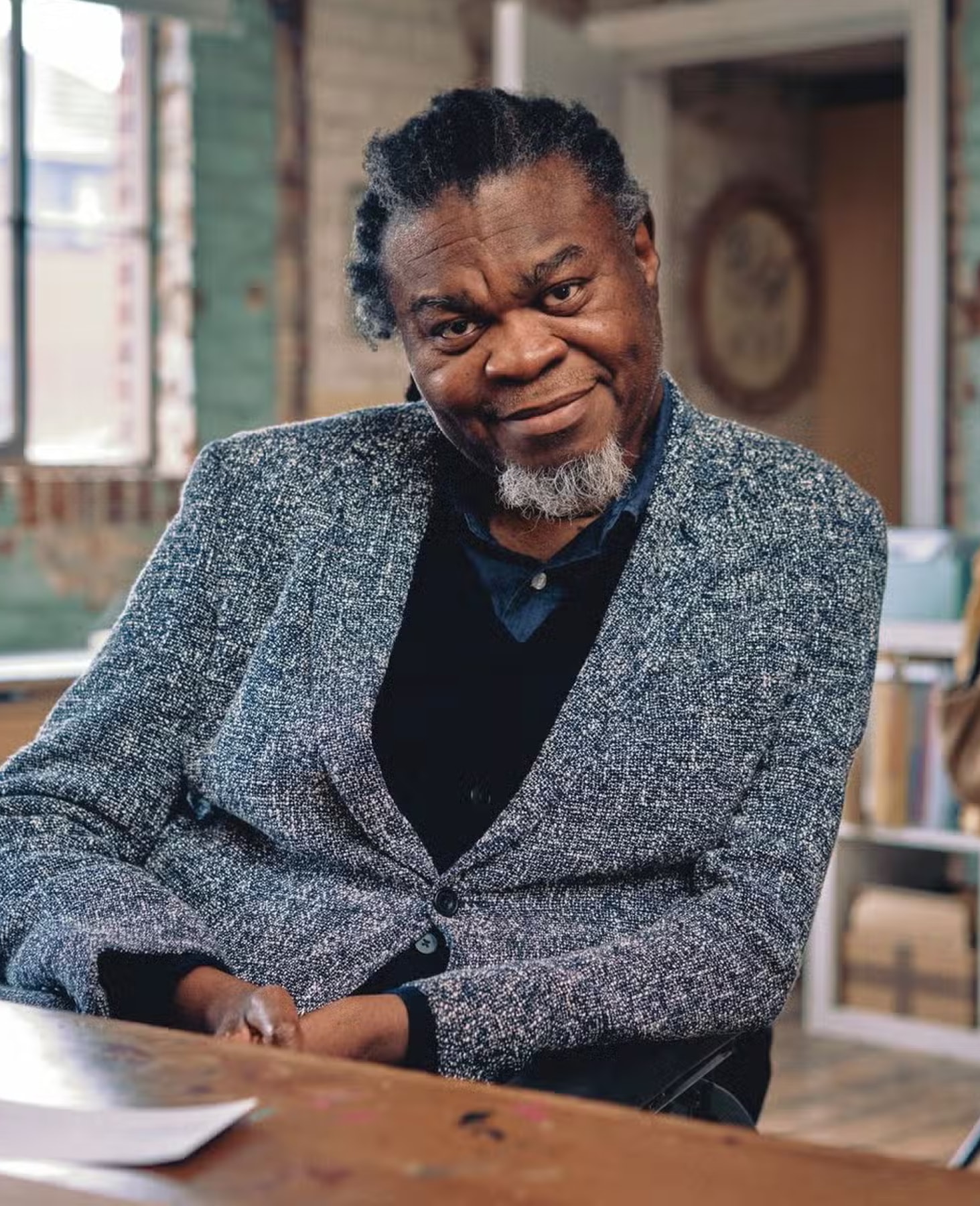
Yinka Shonibare CBE RA was born in 1962 in London, England and moved to Lagos, Nigeria at the age of three. He lives and works in London. Shonibare was a Turner Prize nominee in 2004 and was elected as a Royal Academician by the Royal Academy, London in 2013. He was awarded the decoration of Most Excellent Order of the British Empire or MBE in 2004 and Commander of the Most Excellent Order of the British Empire or CBE in 2019. Shonibare received the prestigious Art Icon Award from Whitechapel Gallery, London and an honorary degree from The Courtauld Institute, London in 2021.
Shonibare’s practice questions the meaning of cultural and national definitions. His signature material is the brightly coloured ‘African’ Dutch wax batik fabric originally inspired by Indonesian design, mass-produced by the Dutch and eventually sold to the colonies in West Africa. In the 1960s the material became a signifier of African identity and independence.
In Spring 2024, Shonibare will have a solo exhibition at Serpentine, London, England. He will also participate in Nigeria’s Pavilion at La Biennale di Venezia, the 60th International Art Exhibition in Venice, Italy. The artist’s new public works include two outdoor sculptures. ‘Material (SG) IV’ was unveiled in September 2023 for Frieze Sculpture, and a permanent commission ‘Hibiscus Rising’ was unveiled in Aire Park as part of Leeds 2023. To mark Sharjah Biennial’s 30th anniversary in February 2023, Shonibare was commissioned to create a series of new works for the exhibition. He transformed the Gallery at sketch, London as part of a long-term programme of artist-conceived restaurants, which opened to the public in March 2022.
